Search results, if found, will automatically update as terms are selected. If no results are displayed, please revise your search terms.
Filter By:

Adam Burgener, PhD
ProfessorDepartment of PathologySchool of MedicineDirectorCenter for Global Health and DiseasesSchool of MedicineMemberPopulation and Cancer Prevention ProgramCase Comprehensive Cancer CenterAdel Mahmoud Professorship of Global Health and VaccinesEmail: axb1160@case.edu
Phone: 216.368.2072
Our laboratory specializes in mass spectrometry based proteomics and systems biology to study host immunity, the microbiome, and interactions in disease. A central focus of our research has been to study host and microbial factors at mucosal surfaces that underlie susceptibility to infectious disease and cancer.
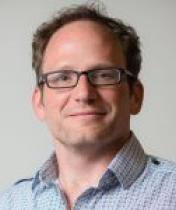
William S. Bush, PhD
Associate Director for Computational GenomicsInstitute for Computational BiologyProfessorDepartment of Population and Quantitative Health SciencesSchool of MedicineProfessorDepartment of Genetics and Genome SciencesSchool of MedicineEmail: wsb36@case.edu
Phone: 216.368.0411
I study bioinformatic and genomic analysis of complex diseases, such as late onset Alzheimer's Disease.
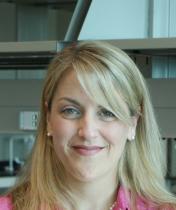
Cheryl Cameron, PhD
Associate ProfessorDepartment of NutritionSchool of MedicineEmail: cheryl.cameron@case.edu
We are interested in using a systems immunology approach to study host response to viral infection (HIV, SARS-CoV, influenza), vaccination (SARS-CoV, influenza, varicella zoster virus), autoimmunity (psoriasis, psoriatic arthritis, POTS, Sjögren's syndrome), cardiovascular disease and cancer (melanoma, colorectal) in order to identify novel therapeutic targets and to inform personalized medicine.
Mark Cameron, PhD
Associate ProfessorDepartment of NutritionSchool of MedicineMemberCenter for RNA Science and TherapeuticsSchool of MedicineMemberImmune Oncology ProgramCase Comprehensive Cancer CenterFacultyCleveland Institute for Computational BiologyEmail: mjc230@case.edu
Phone: 216.368.3196
I investigate the role of interferon signaling genes and the inflammasome in regulating innate and adaptive immune responses in human emerging infectious disease and chronic illness, including COVID-19 research.
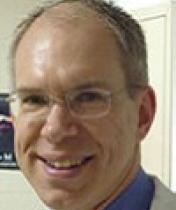
David H. Canaday, MD
ProfessorDivision of Infectious Diseases & HIV MedicineSchool of MedicineEmail: dxc44@case.edu
Phone: 216.368.8901
My research is in the immunology of aging and vaccines with a focus on influenza and shingles vaccination. Specifically, I study COVID-19 in older populations and HIV/TB pathogensis.
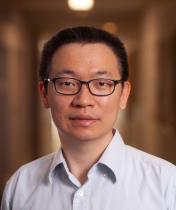
Kaixiang Cao, PhD
Assistant ProfessorDepartment of BiochemistrySchool of MedicineMemberCancer Genomics and Epigenomics ProgramCase Comprehensive Cancer CenterAssistant ProfessorDepartment of Genetics and Genome SciencesSchool of MedicineEmail: kxc725@case.edu
Phone: 216.368.1218
Our lab is interested in understanding how epigenetic events, including histone modifications, DNA modifications, and nucleosome positioning, impact cell fate.
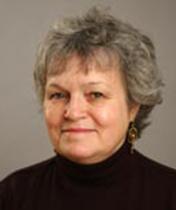
Cathleen R. Carlin, PhD
ProfessorDepartment of Molecular Biology and MicrobiologySchool of MedicineProfessorDepartment of Physiology and BiophysicsSchool of MedicineMemberMolecular Oncology ProgramCase Comprehensive Cancer CenterEmail: cxc39@case.edu
Phone: 216.368.8939
I study receptor tyrosine kinase signaling, human adenoviruses, and protein sorting.
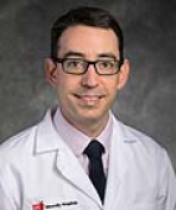
Stephen Carpenter, MD, PhD
Assistant ProfessorDivision of Infectious Diseases & HIV MedicineDepartment of MedicineSchool of MedicineAssistant ProfessorDepartment of PathologySchool of MedicineEmail: sxc1507@case.edu
Phone: 216.368.4512
My lab focuses on how human T cells and macrophages interact and respond during early infection with Mycobacterium tuberculosis (Mtb). We use fluorescence-activated cell sorting (FACS) of human memory T cells from individuals with latent Mtb infection (LTBI) to identify CD4+ T cells that recognize Mtb-infected macrophages, followed by single-cell transcriptomics, surface receptor profiling, and T cell antigen receptor (TCR) sequencing. This platform allows us to compare the functions of individual TCR clonotypes in response to Mtb-infected macrophages to define T cell functions and antigen specificities that can inform the design of protective TB vaccines.

Marilia Cascalho, MD, PhD
Vice Chair for ResearchDepartment of PathologySchool of MedicineRichard J. Fasenmyer Professor in ImmunopathogenesisDepartment of PathologySchool of MedicineMemberImmune Oncology ProgramCase Comprehensive Cancer CenterEmail: marilia.cascalho@case.edu

Sudha Chakrapani, PhD
ChairDepartment of PharmacologyJohn H. Hord Professor and ChairSchool of MedicineDirectorCryo-Electron Microscopy CoreDirectorCleveland Center for Membrane & Structural BiologyEmail: sxc584@case.edu
Phone: 216.368.4631
My focus is in ion channel in fast synaptic neurotransmission, CryoEM methods, EPR spectroscopy, electrophysiology and X-ray crystallography.

